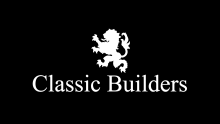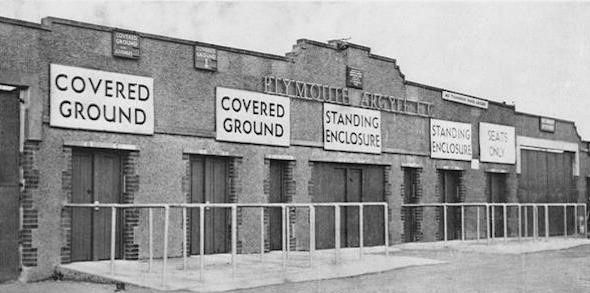Ambassador's Argyle Archives | No.12: Ballard's Legacy
We love our unique history at Argyle, but as well as the famous games and star performers, there are many tales of the unusual. Club ambassador Gordon Sparks will be unearthing the humorous, surprising and behind the scenes tales of years gone by in this fascinating series underlining what makes our club special.
A prominent name strongly associated with Plymouth Argyle’s past lives on today, thanks to his generosity and love of the city.
Guernsey-born Albert Ballard preferred to be known as Archie, an entrepreneur who gradually built a portfolio of London properties and estates in the latter part of the 19th century.
On moving to Plymouth in 1923, he was dismayed at the levels of poverty he saw and set about making a difference. But as time progressed, he also kept a keen eye on what was happening at Argyle – and there was plenty.
Under manager Robert Jack (who, in this second spell, was in charge for 28 years), Argyle won the Division Three (South) championship by seven points. But behind the impressive statistics of 30 wins and just four defeats, financial concerns continued as the club attempted to clear an overdraft of £7,000.
Resisting overtures for three forwards from a First Division club, Argyle reached out to the public to attend matches in greater numbers, and to local businesses for support.
Ballard answered the call as he recognised the importance of a successful football club to the city (a status granted two years earlier from the three towns of Plymouth, Devonport and Stonehouse).
His generosity was already locally known with the setting up of the Ballard Institute in Millbay Road to enhance the lives of boys from poor families.
Within two years, he was made President of Plymouth Argyle and also of the Supporters’ Club which was founded in 1925. One of the main objectives of the latter was to help raise finances for any new signings required, help towards the need of stadium improvements, and to contribute towards travel to away games.
Ballard maintained both roles until his passing in 1942.
The subject of miles covered by Plymouth Argyle has never gone away and, following promotion, the nearest away game was at Southampton. Plenty of trips to the Midlands and much further north were more of a challenge than they are today!
So with his forward thinking, Ballard came up with a solution. The team could fly to some away games.
Flights had been taking off from Roborough Airport since 1925, and he saw it as the perfect opportunity for drastically cutting down on travel time with the players arriving in better condition than they would have if spending much more time on a coach or train.
But he hit an obstacle, namely the powers that be at the Football League when the idea came to him in 1932. They considered that the Argyle players would have an unfair advantage compared to their opponents who were unable to travel in similar circumstances for some of their away games.
Ballard couldn’t resist the opportunity to charter an aeroplane to fly with directors and club officials on the morning of the game at Stoke City that took just over two hours. The players took eight hours each way by train.
His influence at Home Park was visible in other ways, including payment for the extension to the Grandstand.
He also contributed to the new main entrance to Home Park which opened at the start of the 1936-37 season with 17 turnstiles, three exit gates and a ticket office.
But he wasn’t averse to simpler ideas.
On match days, he selected six boys from the Ballard Institute for Boys and provided them with uniforms in club colours to act as what was referred to as ‘mascot ball boys’, standing at regular intervals around the perimeter of the pitch to retrieve the ball as it went out of play.
He set up The Institute in a building he designed on West Hoe Road, which was opened in 1928 by Lady Astor in a grand ceremony. Although heaping much praise on him, Lady Astor did question why Ballard didn’t cater for girls in a similar, charitable fashion.
His generosity extended to £40,000 (£700,000 at today’s rates) to provide scholarships to those who wanted to attend Exeter’s University College.
Ballard died of a brain haemorrhage at his home in Teignmouth in 1942, but local history – and Argyle club records - will ensure his name lives on.
Many Plymouth schoolchildren will remember their first venture towards a swimming certificate at the Ballard Centre at The Crescent. Originally containing a games room and dining area, Plymouth’s first indoor swimming pool was added in June, 1963.
It closed in 2003 and the property put up for sale. But to this day, proceeds of Ballard’s deceased Trust continue to see payments being made to individuals and groups in the local area.



